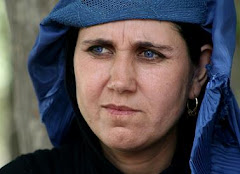At least 17 people, including foreigners, have been killed and more than three dozens of others wounded in a series of suicide, bomb and gun attacks near a hotel and guest houses used by foreigners in the heart of Kabul City. It has been confirmed by the French Foreign Minister Bernard Kouchner, that among the people killed was my French film teacher Severin Blanchet. Kabul, Afghanistan. (Images taken in Afghanistan in 2009).

One of the explosions occurred inside a guesthouse leased by Indian embassy in the downtown Sharh-i-Naw, killing five Indian nationals and wounding eight others.
Two other explosions that damaged a high-rise hotel, Safi Landmark, were described as suicide bombings that also killed two policemen near the Kabul City Center, a nine-story shopping area that includes the luxury hotel.
My teacher, Severin Blanchet who had come from France to start new class of documentary film making was in the hotel and was also killed.
Severin Blanchet was a famous French documentary film maker who began training young Afghan film makers in 2006.
When I heard that my teacher was one of the wounded in the explosion, my colleague and friend Sahr Banoo Sadat, who is member of Atelier Varan Kabul, and I rushed to the hospitals around Kabul to find him but he was not to be found.
After 2 hours Ms. Rita, the head of Goethe-Institut of Kabul called me with the news that my teacher was among the victims killed in the blasts.
Atelier Varan is a French production which helps train film makers in the developing world. Since 2006, Atelier Varan in Afghanistan had trained more than 25 afghan young film makers, who have made a lot of documentaries in Afghanistan.
This is an extract of an email sent by Severin:
'I am planning a short visit to Kabul to get things going between the 15th and 26th of February. We will plan 3 meetings together to discuss the new "production workshop" that we will have this year and coming year. It will be the same principle as "Children of Kabul", a series of 5 short documentaries about a common theme. We will first discuss this common theme. Then we will see what subjects within this theme each of you would like to propose. I will also have individual meetings with those of you who want to discuss their personal projects with me or show me a choice of rushes'. 
This is dedicated to my teacher Severin Blanchet.

This is dedicated to my teacher Severin Blanchet.








.jpg)

.jpg)



